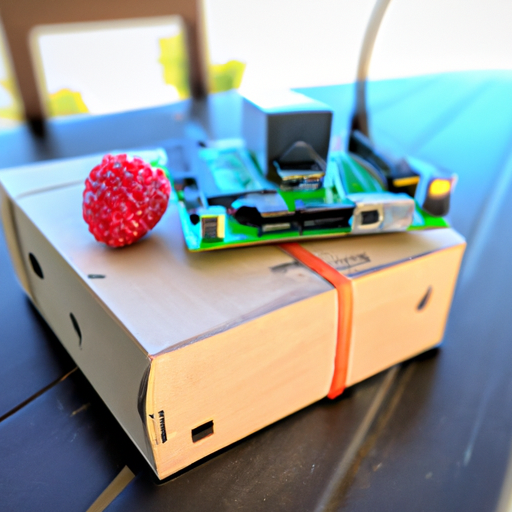Raspberry Pi Projects for Ethical Hackers: Unleashing Mighty Potential in a Compact Device
Raspberry Pi Projects for Ethical Hackers: Power in a Small Package
Raspberry Pi Projects for Ethical Hackers: Power in a Small Package
The Raspberry Pi, a credit-card-sized single-board computer, has taken the world by storm since its introduction in 2012. With its low cost, versatility, and ease of use, it has become a favorite among hobbyists, educators, and professionals alike. One of the most exciting applications of the Raspberry Pi is in the field of ethical hacking, where it can be used to create powerful and portable tools for network security testing, penetration testing, and vulnerability assessment. In this article, we will explore some of the most innovative and inspiring Raspberry Pi projects for ethical hackers.
One of the most popular Raspberry Pi projects for ethical hackers is the creation of a portable hacking station. By combining a Raspberry Pi with a touchscreen display, a wireless keyboard, and a battery pack, you can create a compact and portable hacking workstation that can be used to perform security assessments on the go. This setup allows you to run popular penetration testing tools such as Nmap, Metasploit, and Wireshark directly from your Raspberry Pi, making it an invaluable tool for network security professionals.
Another exciting Raspberry Pi project for ethical hackers is the creation of a Wi-Fi hacking platform. By attaching a USB Wi-Fi adapter with monitor mode and packet injection capabilities to your Raspberry Pi, you can create a powerful and portable Wi-Fi hacking tool. This setup allows you to run popular Wi-Fi hacking tools such as Aircrack-ng, Reaver, and Wifite, enabling you to perform wireless network security assessments and identify vulnerabilities in Wi-Fi networks. Additionally, you can use your Raspberry Pi to create a rogue access point, allowing you to intercept and analyze network traffic for potential security threats.
The Raspberry Pi can also be used to create a network traffic monitoring and analysis tool. By connecting your Raspberry Pi to a network switch or router using an Ethernet cable, you can use it to capture and analyze network traffic in real-time. This can be particularly useful for identifying potential security threats, such as unauthorized devices on the network, suspicious network activity, or potential data leaks. Popular network analysis tools such as Wireshark, Tcpdump, and Tshark can be easily installed on your Raspberry Pi, providing you with a powerful and portable network security tool.
Another innovative Raspberry Pi project for ethical hackers is the creation of a hardware keylogger. By connecting a USB keyboard to your Raspberry Pi and configuring it to log keystrokes, you can create a discreet and portable keylogging device. This can be particularly useful for testing the physical security of a location, as well as identifying potential vulnerabilities in user authentication systems. While this project should only be used for ethical purposes, it demonstrates the power and versatility of the Raspberry Pi as a hacking tool.
Finally, the Raspberry Pi can be used to create a custom intrusion detection system (IDS) or intrusion prevention system (IPS). By connecting your Raspberry Pi to a network and configuring it to monitor network traffic for potential security threats, you can create a powerful and cost-effective security solution. Popular open-source IDS/IPS tools such as Snort, Suricata, and Bro can be easily installed on your Raspberry Pi, providing you with a customizable and scalable security solution.
In conclusion, the Raspberry Pi offers a wealth of possibilities for ethical hackers looking to create powerful and portable tools for network security testing, penetration testing, and vulnerability assessment. From portable hacking stations to Wi-Fi hacking platforms, network traffic monitoring tools to hardware keyloggers, and custom intrusion detection systems, the Raspberry Pi truly offers power in a small package. As the world becomes increasingly connected and reliant on technology, the need for skilled ethical hackers will only continue to grow, and the Raspberry Pi provides an accessible and versatile platform for developing the skills and tools necessary to meet this demand.




